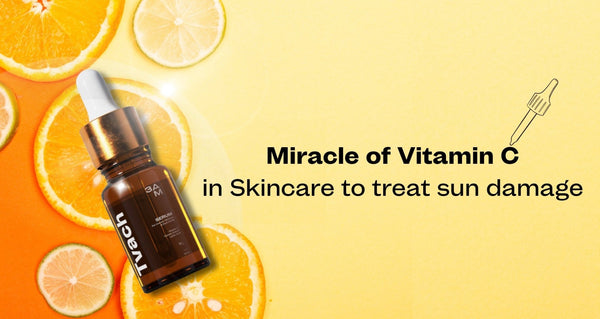What type of sunscreen is better for your skin?

Sunscreen has become an essential part of our everyday skincare routine especially during the onset of summer when the sun's rays become harsher. It might be overwhelming, though, to sort through the variety of sunscreen alternatives. Each type of formulation—mineral, chemical, and hybrid—offers particular advantages and things to think about. To find out which kind of sunscreen might be better for your skin type, let's explore the types of sunscreens.
Originally, there were two types of sunscreen: mineral and chemical sunscreen. Another type of sunscreen that has received hype in the past few years is hybrid sunscreen, and all for good reasons. The fact that it delivers the benefits of both the other sunscreens is due to its ease and the best features of both other sunscreens clubbed together. Let’s dive in to understand each kind of sunscreen better.
Mineral/Physical Sunscreen
Physical sunscreens, sometimes referred to as mineral sunscreens, work by stimulating the skin's surface with active mineral components like titanium dioxide and zinc oxide. These components effectively prevent UVA and UVB radiation by reflecting and dispersing UV rays away from the skin.
The mild formula of mineral sunscreens, which makes them ideal for skin types with sensitive skin, is one of their main benefits. They don't soak into the skin, so they remain on the surface and are less prone to irritate or induce allergic responses. Furthermore, mineral sunscreens are perfect for outdoor activities because they provide instant protection after application.
Mineral sunscreens may, however, have disadvantages. They frequently leave a white cast on the skin, which is more apparent on skin tones that are darker. Furthermore, people with oily or acne-prone skin may find its thicker consistency to be heavy or greasy. However, these concerns have led to developments in formulation that have produced mineral sunscreens that are more elegant in terms of usage and blend in perfectly with the skin.
Chemical Sunscreen
Chemical sunscreens, as opposed to mineral sunscreens, contain organic substances such avobenzone, oxybenzone, octinoxate, and octisalate that absorb UV rays, transform them into heat, and then release it from the skin. Chemical sunscreens are good for daily use under makeup since they are usually lighter and have a more aesthetically pleasing feel.
Chemical sunscreens have the primary benefit of offering broad-spectrum protection without producing a white residue. They are offered in a variety of formulas, that include sprays, lotions, and gels, to accommodate diverse skin types and preferences. Chemical sunscreens are also often more water-resistant than their mineral counterparts, which makes them appropriate for use in aquatic activities.
Nonetheless, the chemical filters in these sunscreens may cause skin sensitivity or irritation in certain people. Concern over specific chemical ingredients—like oxybenzone, for example—that may cause hormonal imbalance and environmental harm has also grown. Because they are safer options, some customers would rather use hybrid or mineral sunscreens.
Hybrid Sunscreen
The advantages of chemical and mineral filters are combined in hybrid sunscreens to provide complete UV protection. These sunscreens combine chemical and mineral components to minimize the disadvantages of each type of sunscreen while offering broad-spectrum protection.
The adaptability of hybrid sunscreens is one of their main benefits. They combine the lightweight texture and sophisticated cosmetic finish of chemical sunscreens with the instant protection of mineral sunscreens. This means that they maintain their effectiveness and comfort level while being appropriate for everyday use—even under makeup.
Heard of a hybrid sunscreen that can be used as a makeup primer too? Well now you have! With 3AM Sundonwer sunscreen spf 50 pa+++ which is a hybrid type that protects from UVA and UVB rays. It gives a cooling effect while doubling up as your primer too. Isn’t it the best?
The adaptability of hybrid sunscreens is one of their main benefits. They combine the lightweight texture and sophisticated cosmetic finish of chemical sunscreens with the instant protection of mineral sunscreens. This means that they maintain their effectiveness and comfort level while being appropriate for everyday use—even under makeup.
To summarize all three sunscreens have their own advantages and disadvantages, but hybrid sunscreen is one that fits all your everyday needs in place. Take this as a reminder to never skip your sunscreen before stepping out of your home and shop your favorites from the 3AM bundle sale where you can avail 4 products at INR 999 only!





